On April 21st 2021, the International Academic Network for a Community with Shared Future (IAN-CSF) held the themed forum of World Earth Day. International experts held this conference to build global commitment on building a green, healthy and sustainable community with shared future.
The ecological environment has become an essential issue of common concern all over the world. As the 52nd World Earth Day draws near, to appeal to all countries to jointly deal with current ecological crisis, the International Academic Network for a Community with Shared Future held a “World Earth Day” Forum with the theme of Green, Healthy and Sustainable, Building a Community with Shared Future” in the afternoon of April 21st. The forum invited representatives of International Research Centersfor a Community with Shared Future. Global experts and scholars from home and abroad participate in the online forum to exchange ideas on the ecological and environmental issues facing the world today and to contribute to the building of a green, healthy and sustainable community with shared future.
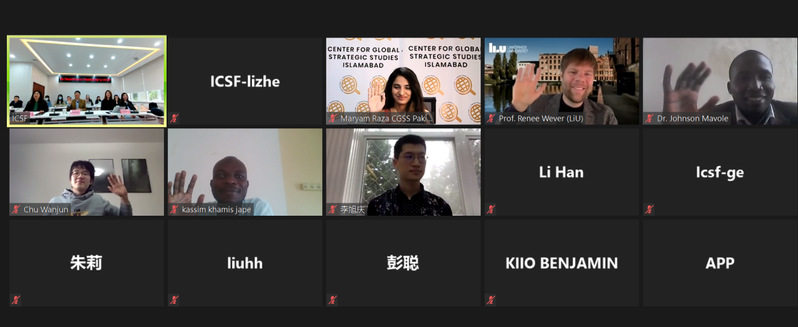
The themed forum of Earth Day held online
The forum was hosted by Professor Zhang Yanqiu, Vice President of the Institute for Community with Shared Future of Communication University of China, Beijing. It consisted of four sessions: sharing the Earth Day theme video, reading the Initiative of “Green, Healthy and Sustainable Development” launched by the International Academic Network, keynote speeches given by domestic and foreign guest speakers, and Q&A discussion. A total of more than 20 experts, scholars, media reporters and students from China, Malaysia, Pakistan, Tanzania, Sweden and the United States had attended the conference.
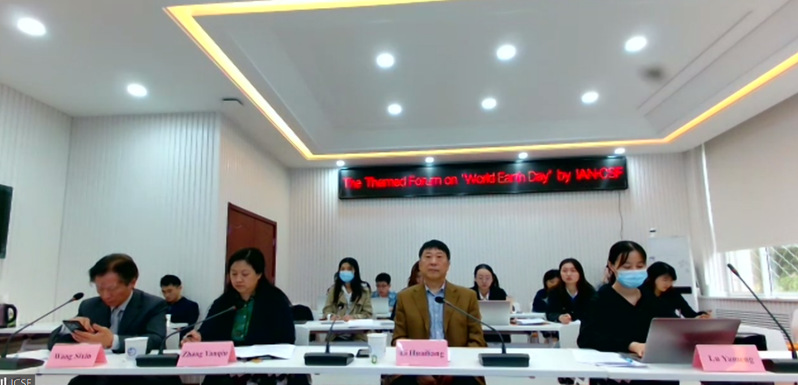
Professor Zhang Yanqiu presided over the meeting
The participants first watched a video on the theme of Earth Day, showing the efforts and contributions made by Chinese college students in protecting the Earth and the environment.
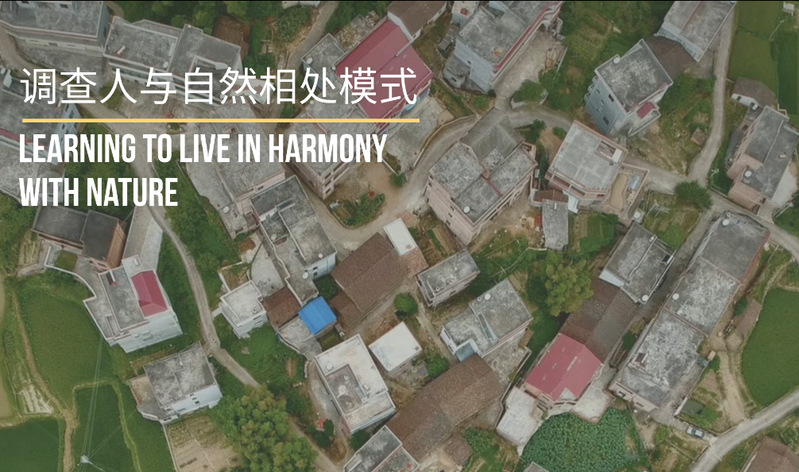
Screenshot from Earth Day video
Then, Professor Wang Sixin, Vice Dean of the Institute for a Community with Shared Future, CUC, as the representative of the International Academic Network, shared the initiative of green, healthy and sustainable development. The Initiative called on the world to conform to international appeals and common law of development, and to promote sustainable development of the Earth through mutual collaboration, close communication and shared responsibilities. The International Academic Network for a Community of Shared Future and all member institutions will spare no effort to foster the dialogue of world civilization and strive for a better future and for the sustainable development of the Earth.
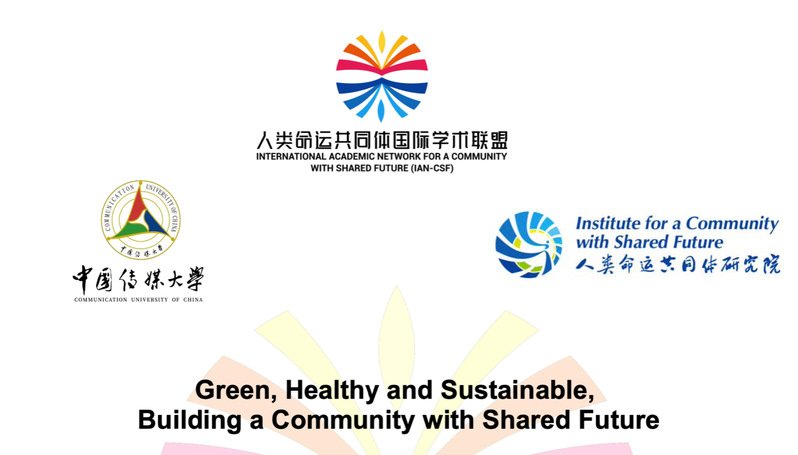
Professor Wang Sixin read out the “Green, Healthy and Sustainable, Building a Community with Shared Future” Proposal
Based on the forum’s topic, Green, Healthy and Sustainable, Community with Shared Future”, heads of International Academic Network, representatives from overseas research centers of the Community with Shared Future and well-known expert in the field of ecological environmentgave keynote speeches. Professor Li Huailiang, Dean of the Institute for a Community with Shared Future, CUC, presented the effectiveness of promoting global environmental governance with the vision of a Community with Shared Future for Mankind.In his speech, Professor Li put forward that sustainable development is an essential part of the vision of a Community with Shared Future for Mankind. The notion of Community with Shared Future provides a new perspective on global environmental issues. It adheres to the principles of the symbiosis of benefit, mutual respect, and shared responsibility, and points out the future direction for global environmental governance.
China cannot be separated from the world in achieving development, and the world also needs China for prosperity. As Professor Li stated, the long-term vision of the Community with Shared Future fits the future-oriented characteristics of global environmental governance and sustainable development.
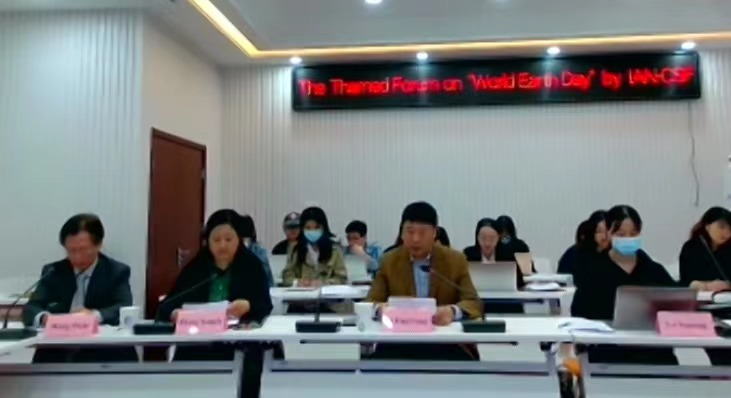
Professor Li Huailiang delivered the keynote speech
Mr. Koh King Kee, director of ASEAN Research Center for a Community with Shared Future, President of Centre for New Inclusive Asia, Malaysia, emphasized the idea of “Mother Earth is the only home of all mankind” in his speech. He mentioned the COVID-19 pandemic taught people more than any other crisis that mankind is a community with shared future. And he also highlighted that human societies must live and meet their needs without compromising the wellbeing of our future generation, “Whatever we do today must not deprive our future generation of their needs and opportunities.”
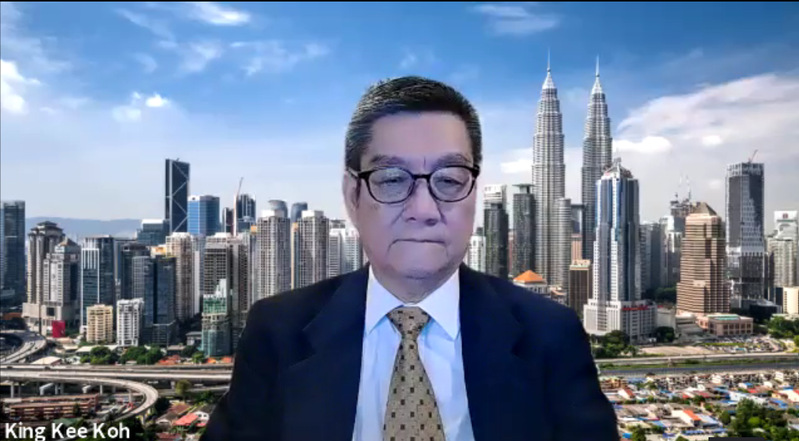
Mr. Koh King Kee, Malaysian scholar gave the speech
Ms. Maryam Raza, representative of Pakistan Research Center for a Community with Shared Future, research associate of Center for Global & Strategic Studies (CGSS), elaborated on tackling environmental challenges in pursuit of clean, green and resilient ecology. She provided examples of environmental threats such as rising temperature, climate change, carbon emission and pollution. From her point of view, no country is immune from the devastating impacts of these global threats.
Furthermore, she discussed the increasing demand of having more sustainable policies to tackle environmental challenges. China has played an active role in solving common global threats. The global network is needed while having integrated and comprehensive approaches to deal with these challenges.
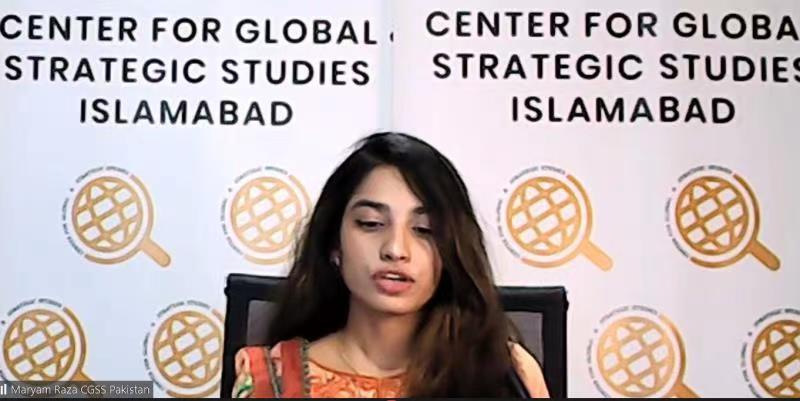
Pakistani scholar Marian Raza as the speaker
Dr. Johnson Mavole, representative of East African Research Center for a Community with Shared Future in Tanzania, brought up the topic of green and sustainable economic development. He provided an insighted view of both challenges and opportunities that Africa faced. Africa’s lack of infrastructures like power facilities deficits is proposed along with potential opportunities of efficient management in natural resources, which are several aspects that African can improve and take advantage of in the future sustainable development. He also mentioned African environment degradation problem of great loss of land due to deforestation, which relates to carbon dioxide emission. He pointed out the importance of efficient and sustainable management of water, land and building in Africa; and the needs for Africa to have sustainable development in transportations, infrastructure and urban design to create a sustainable and innovative future.
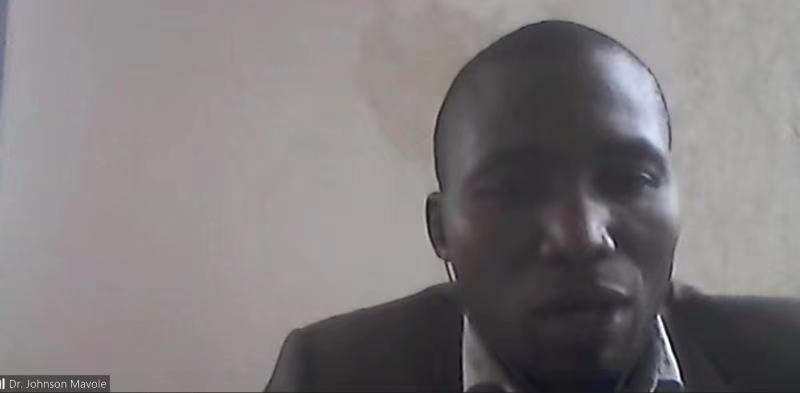
Dr. Johnson Mavole from Tanzania presented
Dr. Renee Wever, expert of Product Realisation of Linkoping University. He reflected that to solve global environmental problems, we need true collaborations cross cultures and dialogues of civilizations through better sciences, higher impacted communications. He expressed his gratitude for holding this forum to facilitate communications within nations to discuss the solutions together.
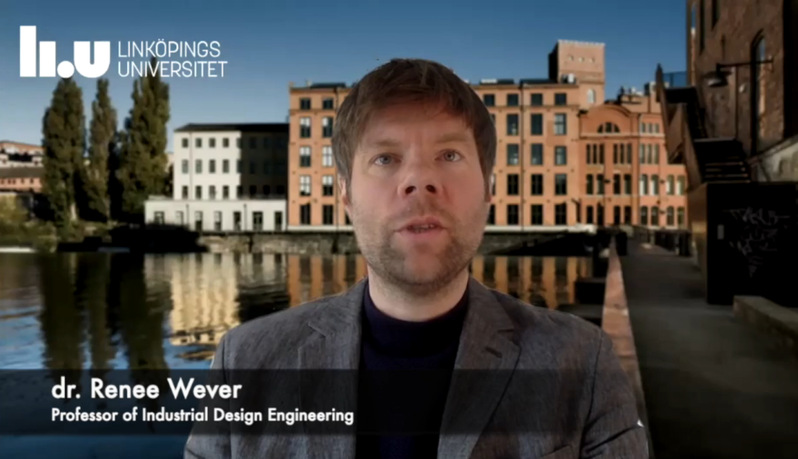
Professor Renee Weaver, Swedish sustainability expert presented
Mr. Anthony J. Moretti, associate professor of the department of Communication and Organizational Leadership, School of Informatics, Humanities and Social Sciences Robert Morris University, addressed the important value in our shared future. Today’s event have interconnected all of us of a shared humanity in the shared future. He pointed out the reason why he filmed the video in his backyard with a group of primary students playing behind him. The primary students are next generation, forgetting environment in actions taken today would have impacts on the air they breathe and water they drink in the future. He also criticized Japan’s decision to dump the treated water in the ocean and emphasized that as academic community, we should remind the world to use resources appropriately, safely, wisely, which is necessary for all of us in the world.
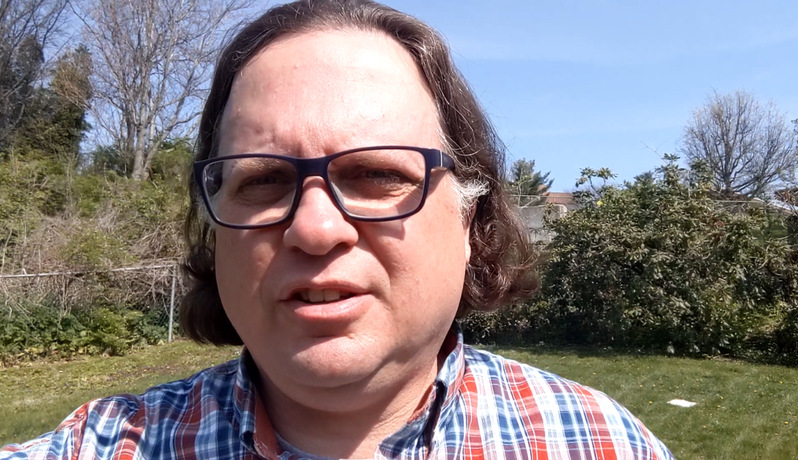
Associate professor of department of Communication and Organizational Leadership, Anthony J. Moretti made the speech
In the free discussion and Q&A session, the host Prof. Zhang Yanqiu, summarized the speeches of the participating experts. Prof. Zhang then invited three representative students of CUC to express their thoughts based on their own experiences. Chen Yuan, who studied African development, shared his experience of doing research and teaching in African countries. He believes the future of China-Africa friendship and cooperation is bright through enhanced dialogue and exchange, mutual benefits, and achieve common prosperity.
Li Han discussed the interpretation of the vision of a community with shared future. She shared her views on some recent environmental issues from an academic’s perspective in misinformation and rumors are becoming global enemy and mentioned the actions taken to be in alignment with the UN’s 17 Sustainable Developmental Goals and in spirits of the 2030 Agenda.
LiangKairui stated the main challenge of global environmental governance, which is the contradiction between the pursuits of each country for environmental sustainability and the goals for economic development. Developed countries have achieved improvement in habitat by moving previous unsustainable industries and production lines to the developing countries in the process of globalization. Developing countries, on the other hand, are still trapped in traditional development models. They encounter problems such as poverty eradication, employment promotion, and environmental protection.
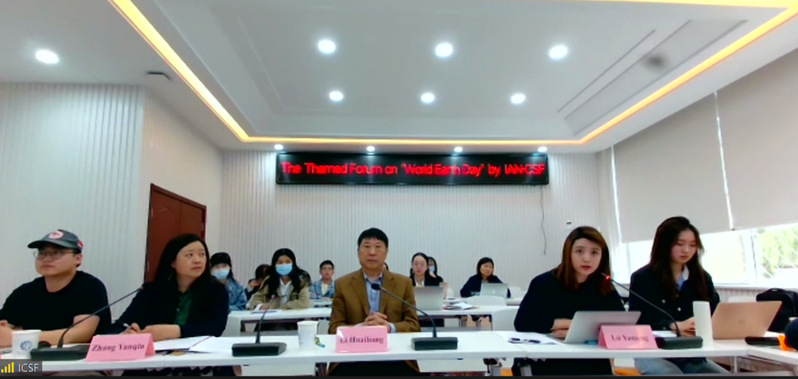
Student representatives at the conference
The international forum was organized under the background of the global environmental problems in the world and changes with the emergence of new world order. Scholars and experts from various countries under the International Academic Network for a Community with Shared Future analyzed the common problems faced by the world in these unprecedented epochal times, and actively discussed green, healthy and sustainable, building a community of destiny together. They affirmed the importance of strengthening transnational academic dialogue and communication and looked forward to a bright future for building a community with shared future.
Scripts: Liang Kairui
Edit: Li Han
